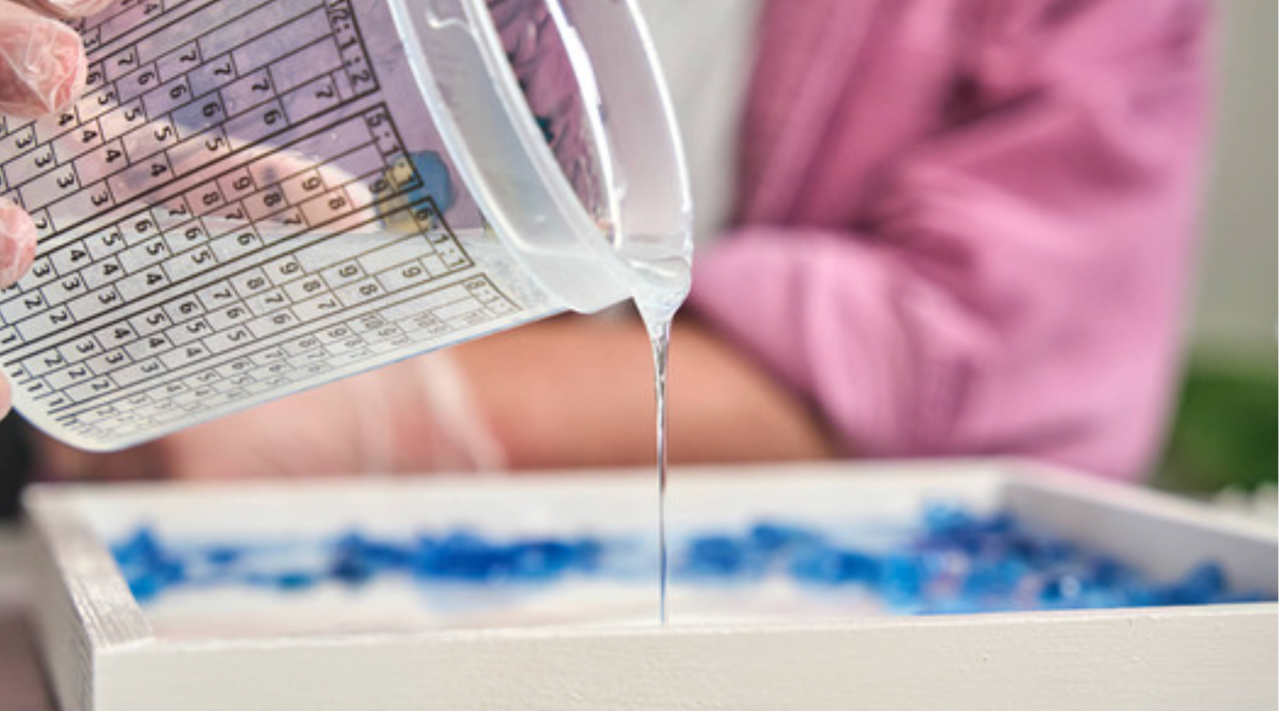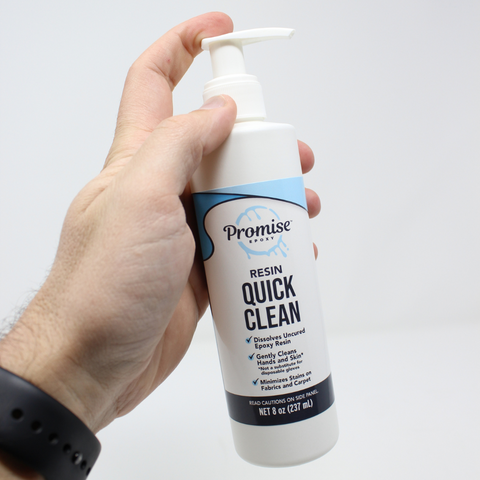Resin crafting is a fulfilling and creative hobby that allows you to create stunning pieces of art, jewelry, furniture, and more. However, one of the most significant challenges resin artists face is cleaning up after a project. Learning how to clean resin can be challenging. Whether it's spills, drips, or tools covered in sticky residue, knowing how to clean resin effectively is crucial. In this comprehensive guide, we'll explore various methods and tips for cleaning resin, ensuring that your workspace remains pristine and your tools last longer.
Understanding Resin and Its Properties
Before diving into the cleaning process, it's essential to understand the nature of resin. Resin is a versatile material that comes in various forms, including epoxy, polyester, and UV resin. Each type has unique properties, but they all share a common characteristic: they can be messy to work with. Resin is sticky, and once it cures, it hardens into a durable, plastic-like substance. This dual nature makes it both a fantastic medium for crafting and a challenging one to clean.
Preparation: Tools and Materials You'll Need to Clean Resin.
Effective resin cleaning begins with preparation. Here are some tools and materials you'll need:
- Protective gloves: Resin can be harmful to the skin, so always wear gloves.
- Disposable cups and stirring sticks: For mixing and application.
- Isopropyl alcohol: An essential solvent for cleaning uncured resin.
- Paper towels or lint-free cloths: For wiping up spills.
- Baby wipes: Convenient for quick clean-ups.
- Acetone: Useful for cleaning cured resin from surfaces.
- Plastic scrapers: To remove cured resin from tools and surfaces.
- Promise Epoxy Resin Quick Clean: A specialized cleaner designed for efficient resin clean-up.
How to Clean Uncured Resin from External Surfaces
Uncured resin is easier to clean than cured resin. Here's how to tackle it and what you'll need:
- Paper Towel or Cloth
- Isopropyl Alcohol
- Promise Epoxy Quick Clean
- Wipe Excess Resin: Use a paper towel to wipe off as much excess resin as possible.
- Apply Isopropyl Alcohol or Resin Quick Clean: Dampen a cloth with isopropyl alcohol and wipe the affected areas. The alcohol breaks down the resin, making it easier to remove. For stubborn spots, use Promise Epoxy Resin Quick Clean onto the area. Let it sit for a few minutes, then wipe it off with a clean cloth.
- Repeat if Necessary: Depending on the amount of resin, you may need to repeat the process a few times.
How to Clean Resin from Hands & Skin
Here's what you'll need:
- Baby wipes or cloth
- Promise Epoxy Quick Clean
If you've accidentally gotten uncured resin on your skin, skip the soap and water - that'll just smear the mess. Instead, reach for Resin Quick Clean. It's a powerful yet gentle solution designed to remove resin effectively from your hands and skin.
Apply a small amount of Quick Clean to the affected area, rub gently to break down the resin, then wipe away with a cloth or baby wipes. Finish by washing your hands thoroughly with soap and water to ensure all residue is gone. It's quick, easy, and the safest way to remove uncured resin from your hands and skin.
Why Resin Quick Clean?
Sometimes, resin can be stubborn. Using isopropyl alcohol can be effective, but it's definitely not the safest to use when trying to remove uncured resin that may have gotten on your surfaces (or skin). It works, and there's a place for it, but it's just not your best option. That's where Resin Quick Clean comes in - it's basically the superhero we didn't know we needed and here's why:
- Dissolves Epoxy Resin
- Gentle on Skin
- Minimizes Stains
- Uses Eco-Friendly Ingredients
- Formulated & Blended in the USA
Learn more about Resin Quick Clean here.
Prevention is Always Your Best Bet
Prevention should always be your #1 goal! And there are a lot of strategies you can use to help keep your workspace and yourself as resin free as possible.
- Make sure you lay down a plastic cover over your workspace. It's like putting a magic shield over your table. Once you're done working you can just roll it up and toss it.
- Want to be a bit more eco-friendly? Get yourself a silicone mat. Resin and silicone are like that couple who agree to go their separate ways - they just don't stick together. You can buy these online or make it yourself if you're feeling adventurous.
The Non-Chemical Method
For the purists who like to keep it simple, here's what you need: wax paper, dish soap, and paper towels. Lay down the wax paper (think of it as your cleaning canvas), and while your resin is in its early curing stages, scrape off as much as you can. A little warm water and you'll be better off than when you started.
We're Here for You!
Got questions? We've got answers! Reach out to us if the resin mess is giving you a headache. We're more than happy to be your cleaning gurus. Check out our FAQs or hit us up on social media for more tips, tricks, and a whole lot of resin inspo.
Happy making (and cleaning)! Keep making messes, and we'll keep helping you clean them up. 😁




3 comments
How can you clean cured resin out of a non silicone reusable mixing container? I have a large container that I used to pour parts A and B into and mixed them; but since it was solid(and not malleable) not silicone it has traces stuck in it that I can’t get out; which means the container is unusable. Help please.
White vinegar will get resin off hands.
Another tip is if the resin won’t cure in a mold, put the whole thing into the freezer (safely) freeze it and then you can remove it from the mold.
Baking paper makes a great cover for work surfaces. Resin doesn’t stick to it and its relatively cheap. You can remove any resin once its cured as easily as silicone mats and it can be put into the rubbish.
I have dried epoxy on my heat mat. My sister borrowed it and got epoxy on my heat mat and it dried on there. Is there anything I can use to get it off?